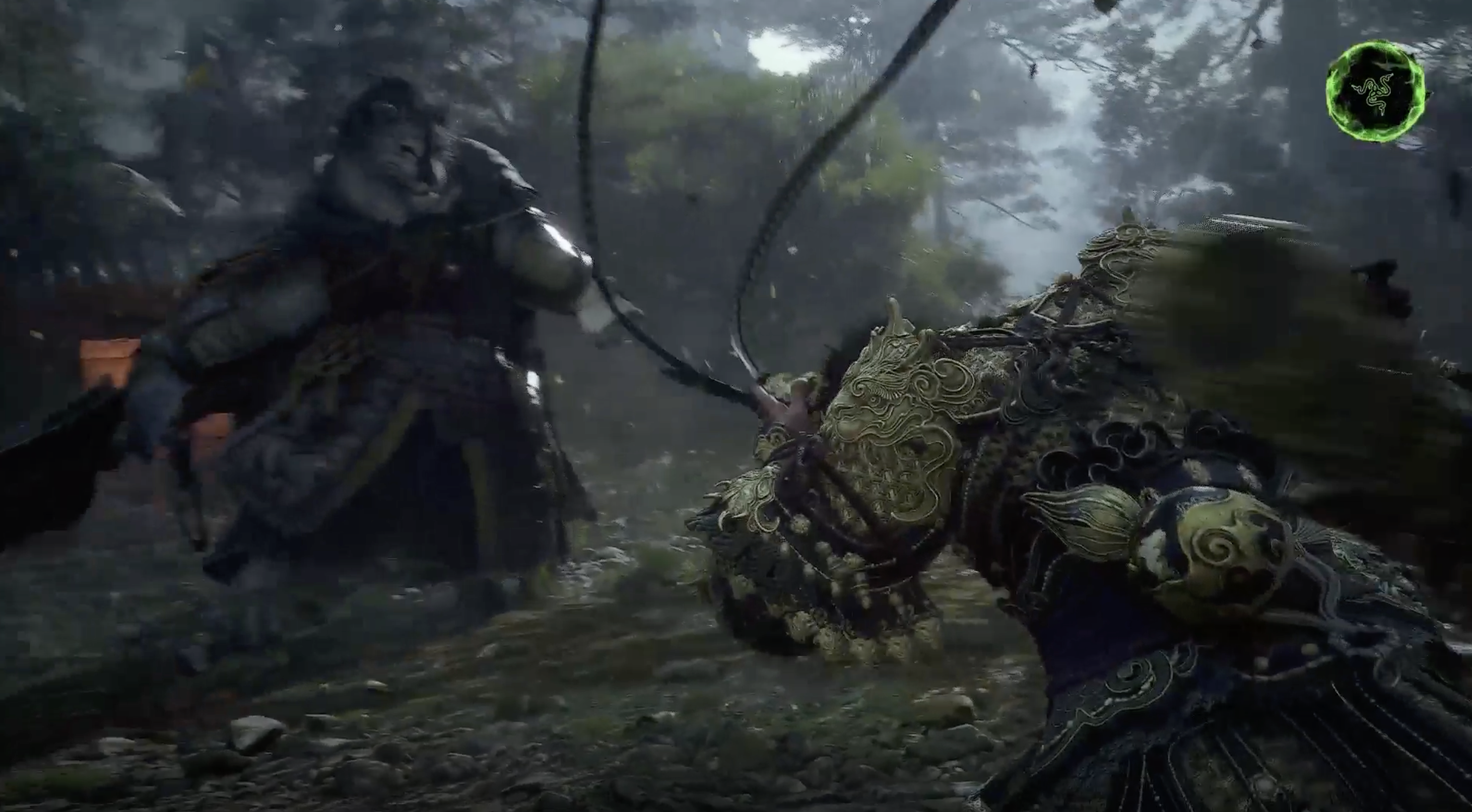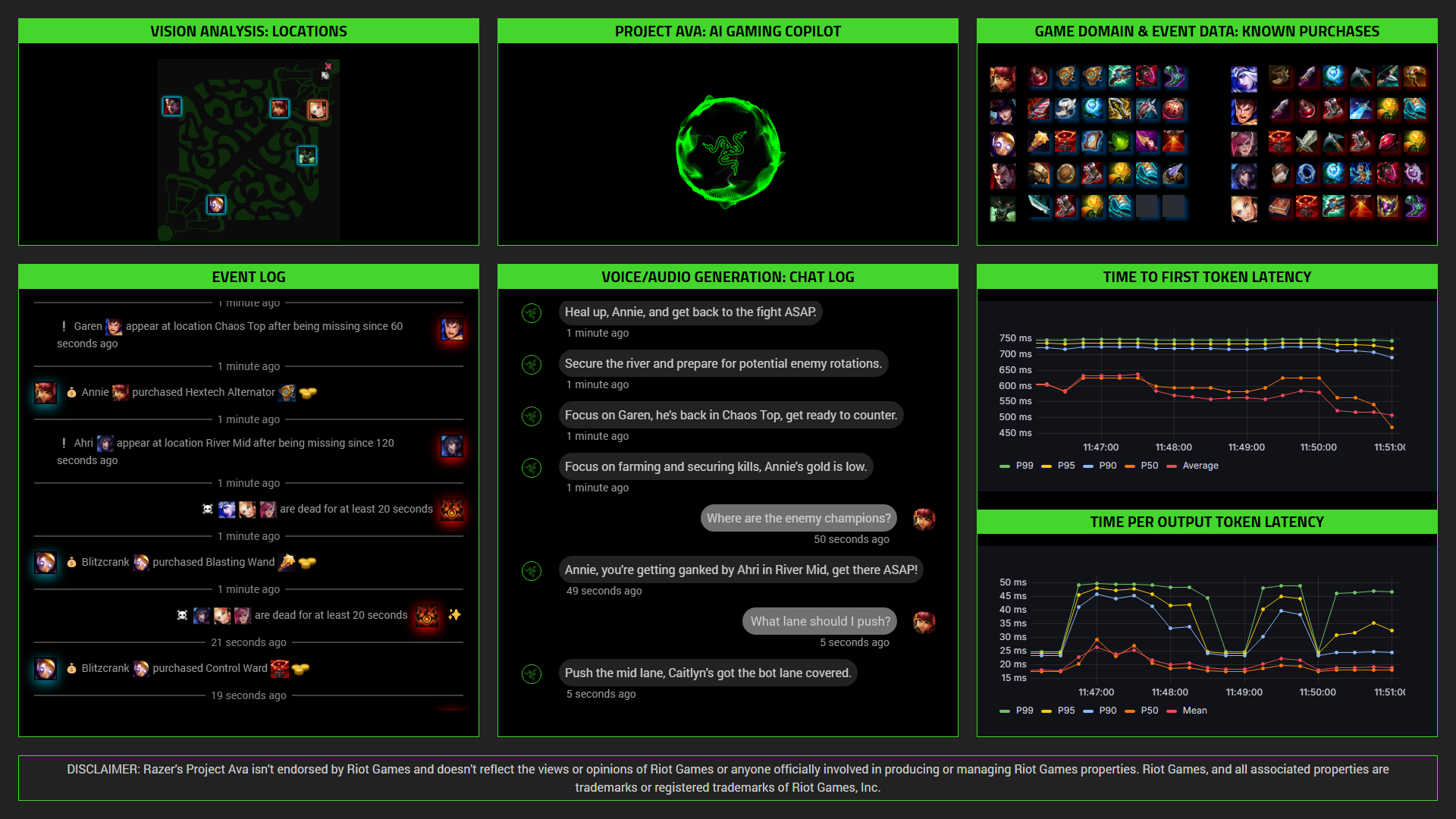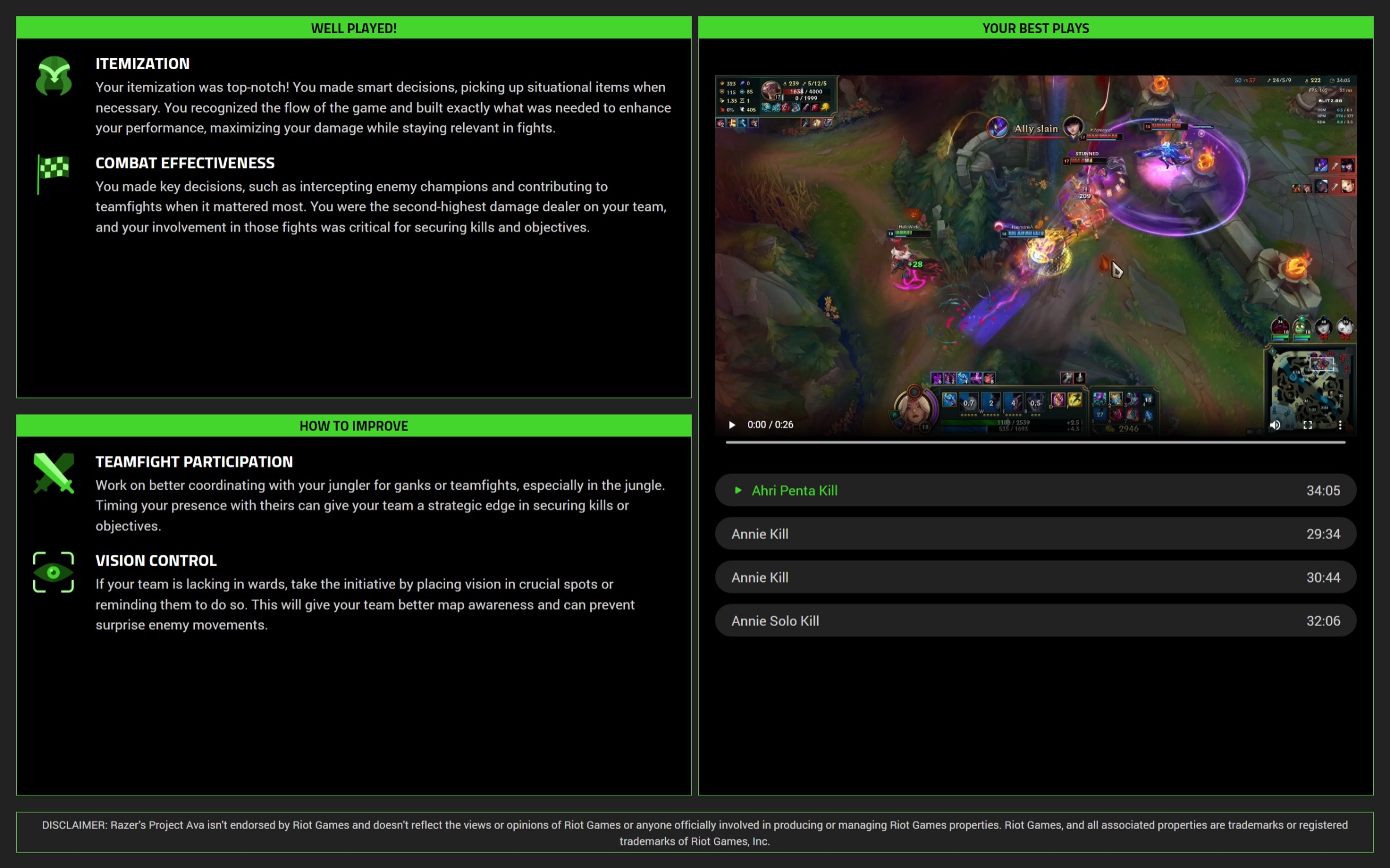
I know, I know... AI is in everything now.
Your phones, your laptops, your email, and sometimes, regrettably, your search engines. And naturally, as a tech category with lots of avid fans, gaming is seemingly up next.
As it stands, there's a lot that tech companies think AI can offer to the world of gaming — dialogue generation and simplified game development, just to name a couple.
But for Razer, a consistent force in the world of PC gaming in particular, it's all about coaching.

Meet Project Ava
At CES 2025 in Las Vegas, Razer took the wraps off its Project Ava concept which uses AI to give real-time coaching for gamers.
A real-time AI coach for League of Legends wasn't on my CES bingo card, but I got to see Ava in action and I'm now convinced AI is about to completely change the way lots of people play games — for better and maybe worse.
But before we get into that, let's start from the top: what even is an AI coach? In Razer's vision, that answer is a pretty broad one.
Ava, at least in the vision laid out at CES, can do a lot, but the pillar of its usefulness is real-time coaching. In practice, this feature of Ava plays out just like you might think.

Say you're playing League of Legends, for example, and you want to know which lane to push or which strategy to adopt to give you the best chances of winning. All you have to do is query Ava with a question and boom, you'll get a strategy tailored to your question.
Where things get really interesting, however, is in how Ava comes up with the answer. Unlike other AI esports coaches, Ava's answers aren't just based on data from games of other people, it's based on what's happening in your game specifically. That's thanks to the use of Razer's vision analysis. In short: Ava is watching you play.
That difference gives Ava a more personal approach than other AI coaches and could potentially make it more appealing for gamers who want specific questions on the fly. This would also give Ava an edge in more competitive gaming where even minor adjustments in the moment could make a big difference.
And the coaching doesn't stop there. Razer also showed off another feature of Ava, which is a post-game analysis that breaks down what you may have done wrong or what you did right so you can adjust your play in the future. Again, that might not be a must-have feature for everyone, but if you're a competitive gamer who wants to elevate your play, then a little tough love might not be such a bad thing.
Not just esports
So, what about the rest of us who enjoy gaming in a more casual, less eye-eroding, manner?
Well, thankfully it's not all about esports. Razer is also envisioning Ava as a walkthrough coach for more single-player experiences like Black Myth: Wukong. If you're stuck on a boss, for example, you can have Ava give you some tips about timing — when to dodge, when to block, when a special attack is coming. And again, the advice is tailored specifically to the game, meaning you're not getting general tips on RPGs, you're getting tips about the game you're playing in that moment.
Razer also says it will adjust Ava's coaching style to your preferred level of involvement. If you want a more hands-off coach to sprinkle in tips here and there, then you could choose that. If you want a real step-by-step coach, then you could choose that too.

I watched and listened to Ava's advice on a boss in Black Myth: Wukong and was impressed by its real-time coaching acumen during the fight. Whether Razer could actually deliver coaching with that speed in the real world is a different question entirely, but this is a concept after all, and with some suspension of disbelief included, it was fun to watch.
And sure, YouTube could give you the same walkthrough, but why pause your game and trawl the internet for a tutorial when Ava can do it right there and then?
Who is Ava for?
If you're reading the description of Ava and yelling at your screen, I feel you.
An AI gaming coach isn't for everyone, and in some ways, the idea also rubs me the wrong way. Playing a game, fighting a boss, and losing are all a part of the process of learning how to win in a game, but also (to put my philosophical hat on for a moment) learning how to love it.
Game designers, at least good ones, spend a lot of time thinking about the difficulty and how much to instruct players on how to play the game, and making coaching so accessible might detract from the raw discovery and mystique of getting better at it.
Lord knows I've watched my fair share of Elden Ring tutorials, but that's only after trying and failing to figure something out myself. And if an AI coach like Ava is constantly by your side making sure you don't miss something, it's worth asking what, if anything, is lost with that style of play.
Those are all questions we can't answer, of course, but maybe not for long. Razer and other gaming companies seem intent on using AI for in-game guidance, and it's only a matter of time before we start to see more and more of their philosophies creep in.
I might not be convinced that using Ava is the most rewarding way of playing a game, but Razer has convinced me of one thing: AI coaches are coming to a title new year whether you want them to or not.







